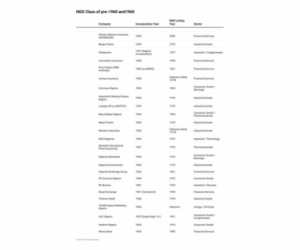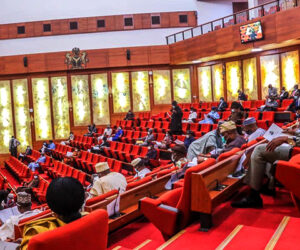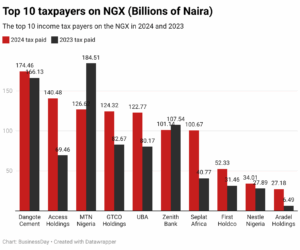Nigerian banking stocks reported gains on Wednesday, 24 hours after the Central Bank of Nigeria (CBN) surprised markets with a 50 basis points interest rate cut, a move aimed at stimulating lending and spurring economic growth amid slowing business activity.
The Monetary Policy Committee (MPC) reduced the monetary policy rate (MPR) to 27 percent, marking the first cut in five years. The decision sent a positive signal to equity markets, with investors piling into banking shares expected to benefit from higher loan demand.
On Tuesday, the banking index on the Nigerian Exchange (NGX) fell by 1.04 percent after the central bank rate cut, underperforming the broader All-Share Index, which slipped 0.24 percent.
Read also: Bank stocks spur NGX-ASI dip by 0.49%
However, on Wednesday, the stocks rebounded, rising by 1.29 percent, led by Stanbic IBTC (3.93 percent), FCMB Group (1.91 percent), and United Bank for Africa (1.74 percent). Market analysts say the rate cut could ease borrowing costs for businesses and households, potentially boosting credit growth and fee-based income for lenders.
“I guess that the market did not understand potential implications of a rate cut on the banking stocks on Tuesday,” said Ike Ibeabuchi, an emerging markets analyst.
“But the tempo changed on Wednesday when it dawned on the market that a rate cut could boost demand for credit, which could increase banks’ profits,” he added.
At the MPC meeting in Abuja on Tuesday, the CBN reduced the MPR by 50 basis points to 27 percent, signaling the beginning of a policy easing cycle aimed at supporting growth without sacrificing hard-won macroeconomic stability.
“The MPC’s decision to lower the monetary policy rate was predicated on the sustained disinflation recorded in the past five months, projections of declining inflation for the rest of 2025, and the need to support economic recovery efforts,” Olayemi Cardoso, CBN governor, said after the Monetary Policy Committee (MPC) meeting.
Also, to stimulate bank lending and support credit to the private sector, the MPC reduced the Cash Reserve Requirement (CRR) for commercial banks to 45 percent, down from 50 percent, while retaining the CRR for merchant banks at 16 percent.
Read also: Bank stocks dip after CBN’s directive on dividends, bonuses
Data from the CBN disclosed that credit to the private sector fell to N76.12 trillion in June 2025, marking the fourth time this year that lending to businesses and individuals had declined.
Muda Yusuf, CEO of the Centre for the Promotion of Private Enterprise (CPPE), said the reduction of the MPR and CRR demonstrates the CBN’s deliberate effort to improve liquidity conditions, lower borrowing costs, and unlock capital for productive sectors of the economy.
Yusuf further said that a more accommodative monetary environment would strengthen financial intermediation, enabling banks to better mobilise savings and channel them into productive investments, thereby reinforcing financial deepening and economic growth
However, some analysts caution that while the rate cut may drive credit expansion, it could also narrow banks’ net interest margins (NIMs) as yields on government securities decline.
Bismarck Rewane, managing director/CEO of Financial Derivatives Company (FDC), during the Alpha Morgan Economic Review, disclosed that bank stocks are expected to crash in the next few weeks as there will be no earnings or dividends to support their current valuations.
“The banks and financial institutions’ earnings will drop relative to their price, while those who are in the real sector will have their earnings increase, and their margins expand, making their stock market capitalisation increase, but not in favour of the banking stocks,” he added.
Read also: Investors gains N5.49trn in June as consumer goods, insurance, bank stocks rally
The CBN moves come against a backdrop of improving macroeconomic fundamentals. Nigeria’s economy expanded 4.23 percent year-on-year in the second quarter (Q2) of 2025, up from 3.13 percent in Q1, largely buoyed by a sharp rebound in the oil sector.
Gross external reserves climbed to $43.05 billion as of September 11, up from $40.51 billion in July, offering an 8.28-month import cover. The naira has also stabilised after months of volatility, supported by stronger capital inflows and a current account surplus of $5.28 billion in Q2.









